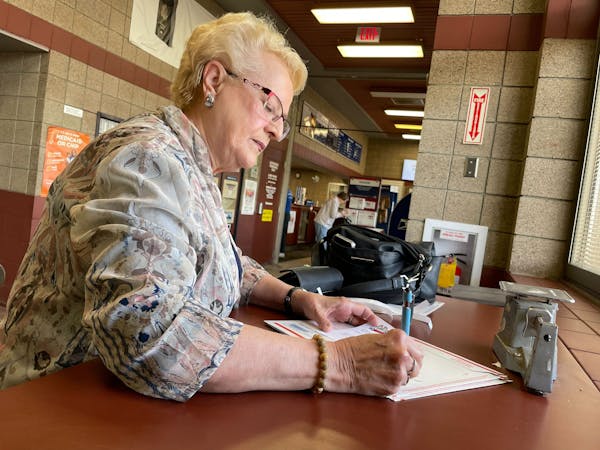A 12-year-old girl arrived home from Shakopee Middle School in early May, crying, confused and embarrassed.
After a sex education class during the day, the sixth-grader had questions for her parents: "Why didn't they separate us from the boys?" she wanted to know. She felt like all her secrets had been revealed when the class saw pictures of a developing girl. And what is this sex thing, anyway? Is it bad? And what about sexually transmitted diseases?
On Monday, a group of about 10 parents confronted the Shakopee school board, raising concerns about how the sixth-grade's two-week sex education unit had been taught this spring, and how parents were notified ahead of time.
"The issue is that we as parents feel we have the privilege to talk about these issues with our children first," said parent Giovanni Massard, who was among the group who expressed concerns to the board.
"These are children who in the morning were watching cartoons and in the afternoon were talking about STDs." Massard said.
'Not on a witch hunt'
The parents urged the district to separate the sixth grade's more than 400 students by gender during sex education instruction, as well as to provide a "non-embarrassing" alternative to the instruction such as basketball so students aren't made fun of if their parents decide to remove them from the classroom.
"When is it ever appropriate for a sixth-grade boy to learn about female puberty and vice versa?" parent Michael Gessinger said after the meeting. "We're not saying they should take sex education out of our schools. We're not on a witch hunt. Just allow the students to be comfortable when they're hearing this information."
Shakopee Superintendent Jon McBroom said the school district has kept girls and boys together for this unit for at least 20 years. He said the district believes that teachers who have spent the entire school year with students are best equipped to handle the emotional subject.
Parents are also concerned that the letter they received from the district detailing sixth-grade health curriculum, described the sex education aspect as "human growth and development."
District officials acknowledged that the letter was a mistake, and that this was the first year the district sent a letter that didn't more explicitly explain the unit. That will change in the future, McBroom said.
On a statewide level, advocates of sex-education legislation that would require schools to include birth control and STD information withdrew the measure this spring when Gov. Tim Pawlenty threatened to veto the entire omnibus education bill if it contained the sex education package.
Maturing bodies
According to a chart of the sixth-grade health curriculum, Shakopee students learn about body changes during adolescence, the reproductive system, and stages of human development before and after birth.
Parents were concerned about the more graphic parts of the curriculum, such as pictures of girls' and boys' bodies as they mature, and they say the district failed to teach about the emotional and beautiful part of sex, focusing instead on the biological part.
They also raised concerns about the use of a PBS NOVA video called "Life's Greatest Miracle," which shows a live-birth scene, and a video from Sunburst Communications called "The New Improved Me: Understanding Body Changes."
"These are 11- and 12-year-olds who are still very much babies in their parents' eyes," said parent Joy Massard.
The school board, as part of a regular cycle, reviewed its health curriculum during the past school year. Not much was changed, officials say, but they are planning to look for updated materials to supplement the curriculum. The district plans to offer health classes to students in sixth, eighth and 10th grades. Fourth-grade students are separated by gender when they receive information about puberty.
School officials will address the parents' concerns at a June 19 meeting, which had already been scheduled to discuss the district's health curriculum.
McBroom said Shakopee's sex education curriculum, which discusses abstinence, is no different than that of other districts where he's worked. And he pointed to research that shows the vast majority of students do not get adequate sex education from their parents.
"We do the [curriculum] at a time when there are changes for young people," McBroom said. "If we change it, we need to make sure that we have sound reasons for doing it."
Emily Johns • 952-882-9056
2nd teen charged as adult with murder in shooting of 2 cousins on Halloween in Brooklyn Park

Teen who gunned down Zaria McKeever during home invasion sentenced to 10 years in prison

St. Paul parents charged in baby's fentanyl overdose death

